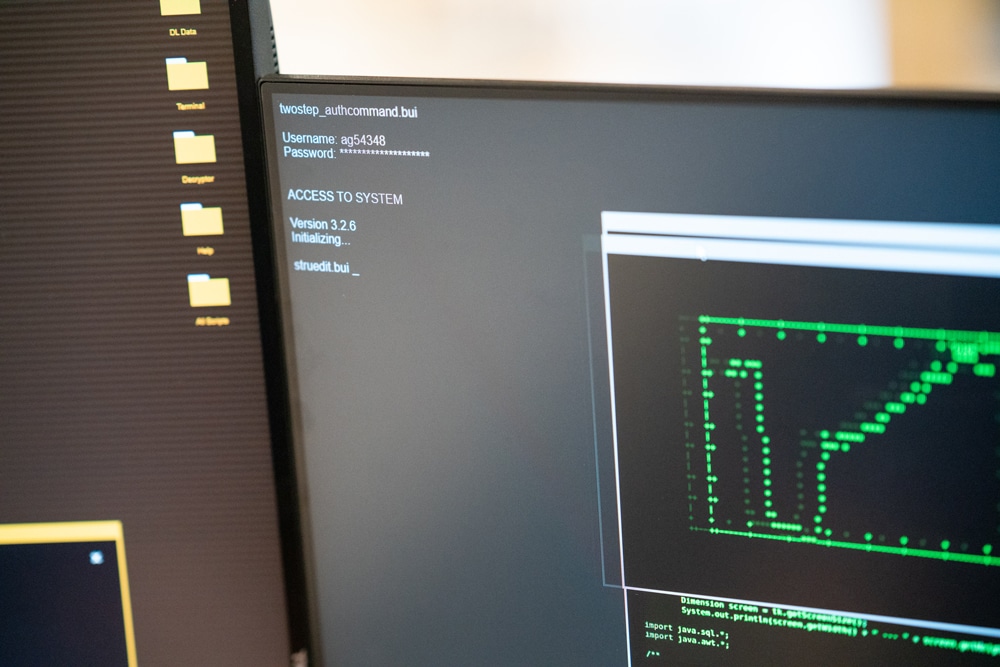Understanding the cybersecurity vulnerabilities that criminals commonly exploit is key to developing effective cybersecurity strategies. Small businesses are frequently targeted through phishing emails, unpatched software vulnerabilities, weak passwords, poor data backup solutions, and social engineering tactics. It is crucial for small business owners to stay informed about these cyber threats and take proactive measures to address them.
This article sheds light on the top five biggest cybersecurity vulnerabilities and threats faced by small businesses and provide actionable steps on how to prevent and mitigate these risks effectively.

The Impact of Cybersecurity Threats on Small Businesses
Small businesses are often unprotected from cybersecurity vulnerabilities in today’s increasingly digital landscape. As technology advances, so does the sophistication of cybercriminals, making it crucial for small businesses to stay on top of the latest cybersecurity vulnerabilities.
To combat cybersecurity threats, it is essential to understand the landscape in which they operate. Small businesses often mistakenly assume that they are not a target for cybercriminals due to their size. However, this belief can prove devastating, as they are often seen as easy targets with limited resources and less advanced security measures. It is crucial to recognize that size does not guarantee immunity from cybersecurity vulnerabilities.
Cybersecurity threats can have a profound and long-lasting impact on small businesses. Beyond financial losses resulting from data breaches, businesses can suffer reputational damage, legal consequences, and loss of customer trust. The costs associated with these repercussions often far exceed the initial investment required to implement strong cybersecurity measures. Therefore, small businesses must prioritize cybersecurity to protect their assets and maintain the trust of their customers.
Top 5 Cybersecurity Vulnerabilities Targeted by Cybercriminals
Phishing Emails
Phishing emails are a common tactic used by cybercriminals to trick individuals into revealing sensitive information such as login credentials or financial details. These attacks involve malicious actors sending deceptive emails or messages to trick employees into revealing sensitive information or downloading malware. These emails often appear to be from legitimate sources, such as banks or government agencies, and contain links or attachments that, when clicked, can lead to malware installation or data theft.
Once a phishing attack is successful, cybercriminals can gain unauthorized access to the company’s systems, putting sensitive data at risk. These attacks can be particularly harmful to small businesses, as they often lack the robust email filtering and employee training programs needed to detect and prevent phishing attempts.
Poor Data Backup Solutions
Another significant cybersecurity threat that small businesses face is ransomware. Ransomware is a type of malware that encrypts a company’s data and demands a ransom for its release. Falling victim to a ransomware attack can result in significant financial losses, operational disruptions, and reputational damage. Small businesses often struggle to recover from ransomware attacks due to the complexity of decrypting data and the pressure of meeting ransom demands within a limited timeframe.
They are attractive targets for ransomware attackers because they may not have adequate data backup solutions in place, making them more likely to pay the ransom to regain access to their files. It is crucial for small businesses to implement strong cybersecurity measures, such as regular data backups that are not connected to your network and employee training, to protect against ransomware attacks. Small businesses should segment their networks, regularly update IoT device firmware, and monitor device activity to prevent potential security breaches.
Unpatched Software
Unpatched software vulnerabilities are another prime target for cybercriminals looking to exploit weaknesses in a system. Software vendors regularly release updates and patches to fix security flaws, but if these updates are not applied promptly, it leaves the system open to potential attacks. Small businesses, in particular, may struggle to keep up with patch management due to limited resources or lack of dedicated IT support.
Weak Passwords
Weak passwords are often the point of entry for a hack. Many applications do not enforce password complexity and as a result of that users use simple passwords that can be easily breached. Weak password does not always mean length and the characters used, it also means they can be easily deciphered by a hacker. Users should not use password related to name, place, or mobile number.
Social Engineering
People are often the weakest links in IT security. Social engineering is the manipulation of people to access confidential information or systems. Hackers often steal employees’ confidential information or data, and the most common type of social engineering happens over either phone (call or text) or email. Other examples of social engineering attacks include criminals posing as service workers or technicians, so they go unnoticed when access the physical site of a business.
Proactive Measures to Protect Yourself from Cybersecurity Vulnerabilities
Prevention is always better than cure when it comes to cybersecurity vulnerabilities. Implementing proactive measures can significantly enhance a small business’s ability to defend against cyber threats. This includes regularly updating software, utilizing firewalls and antivirus software, employing strong authentication methods, and conducting regular risk assessments. By taking these steps, small businesses can create a robust cybersecurity framework that effectively guards against potential threats.
Additionally, establishing clear incident response protocols is essential for small businesses to effectively mitigate the impact of a cyber attack. Having a well-defined plan in place from your managed services provider should outlines steps to take in the event of a security breach can minimize downtime, reduce financial losses, and protect the business’s reputation. Regularly testing these response protocols through simulated cyber attack scenarios can help identify any cybersecurity vulnerabilities in the system and ensure that employees are well-prepared to handle real-life cybersecurity incidents.
Importance of Employee Training in Preventing Cyber Attacks
Employees play a crucial role in safeguarding against cybersecurity vulnerabilities. It is essential to invest in comprehensive training programs that educate employees about the potential risks and best practices for cybersecurity. Training sessions on how to identify phishing emails, the importance of creating strong passwords, and the risks of using unsecured public Wi-Fi can empower employees to become the first line of defense against potential threats. By fostering a cybersecurity-conscious culture within the organization, small businesses can reduce the likelihood of successful cyber attacks.
Furthermore, employee training should also include guidance on secure remote working practices. With the rise of remote work arrangements, employees need to understand how to secure their home networks, use virtual private networks (VPNs) effectively, and protect sensitive company information while working outside the office. This additional layer of training ensures that employees are equipped to handle the unique cybersecurity challenges that come with remote work.
Another crucial aspect of employee training in preventing cyber attacks is creating awareness about social engineering tactics. Cybercriminals often use social engineering techniques to manipulate employees into divulging sensitive information or granting unauthorized access to systems. By educating employees on common social engineering tactics such as pretexting, baiting, and tailgating, businesses can empower their workforce to recognize and thwart such attacks, bolstering the overall cybersecurity posture of the organization.

Collaborating with Cybersecurity Experts for Enhanced Protection
Small businesses often lack the in-house expertise required to develop and implement robust cybersecurity strategies. Collaborating with cybersecurity experts can provide small businesses with the necessary knowledge and resources to enhance their protection. These experts can assess small business networks for vulnerabilities, develop incident response plans, and recommend tailored security solutions. By leveraging external expertise, small businesses can ensure they are staying ahead of the ever-evolving threat landscape.
One key benefit of working with cybersecurity experts is the access to specialized knowledge and experience that they bring to the table. These professionals are well-versed in the latest cybersecurity trends, emerging threats, and best practices for mitigating risks. By tapping into their expertise, small businesses can gain valuable insights into potential vulnerabilities within their systems and processes, allowing them to proactively address security gaps before they are exploited by malicious actors.
Furthermore, collaborating with cybersecurity experts can also help small businesses navigate the complex regulatory landscape surrounding data protection and privacy. With the increasing number of data privacy regulations such as GDPR and CCPA, it is crucial for small businesses to ensure compliance to avoid hefty fines and reputational damage. Cybersecurity experts can provide guidance on how to align security practices with regulatory requirements, helping small businesses establish a strong foundation for data protection and privacy compliance.



